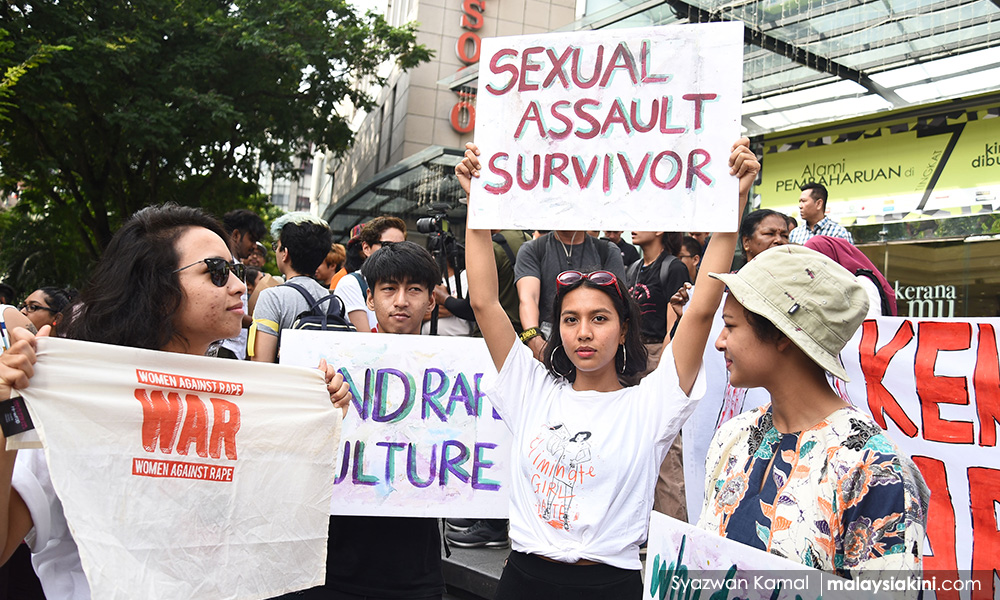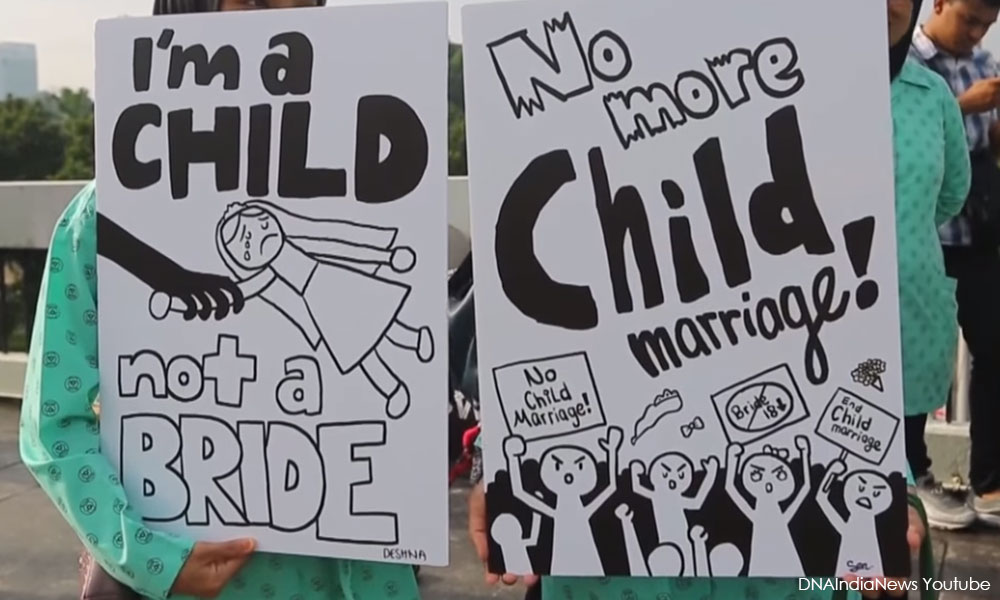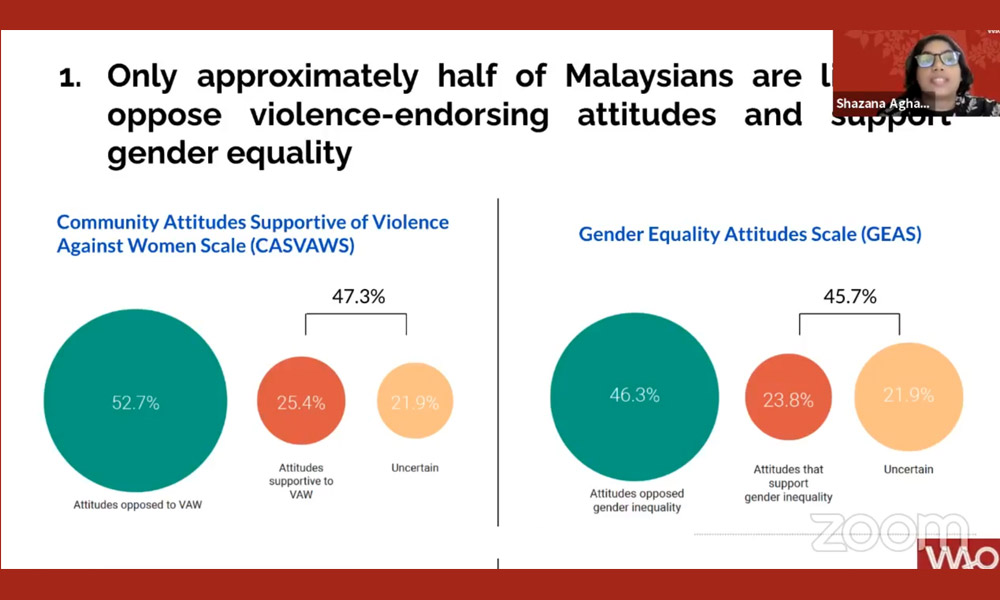A recent study conducted by the Women’s Aid Organisation (WAO) found that almost half of Malaysians, or 47 percent, either feel uncertain or do not support gender equality.
It revealed that a majority of the respondents expressed either negative or uncertain attitudes toward gender inequality, and tend to deny gender inequality is a problem.
The study was conducted by Isabel Chung, Anis Farid, and Shazana Agha of WAO, with an 80-question survey distributed among 1,000 participants from different genders, age groups, ethnicities and backgrounds.
It highlighted 13 key findings, a majority of which reflected the reality of the attitude and perception of Malaysians on violence against women and gender inequalities.
According to WAO, 38.2 percent of the participants showed disregard for the women’s right to consent on matters affecting them and 48 percent showed an attitude that undermines women’s independence and decision making in private life.
The study showed there is a disconnect between knowledge and practice on violence against women, meaning people can identify violent behaviours but fail to practice the same in everyday scenarios.
“So, while respondents are able to pinpoint what domestic violence looks like, they still deem that it is normalised and acceptable in certain situations.
“For example here, 96.5 percent of our respondents recognise that if one partner in a domestic relationship slaps or pushes the other partner, it is domestic violence,” Chung said.
Concerning numbers
The report showed 53.3 percent of them still believe domestic violence is a normal reaction to everyday stress and frustration, 43 percent think a woman occasionally can make a man so angry that he hits her when he did not mean to, and 30 percent believe women who flirt all the time are to be blamed if their partner gets jealous and hits them.

The study also found a significant minority of Malaysians showed disregard for domestic violence victims, with 37.1 percent of them believing that leaving an abusive relationship is not as hard as people say it is, and 44.9 percent think that female victims who stay with their abusive partners are responsible for the ongoing abuse.
It showed that while respondents showing negative attitudes towards violence against women and gender equality remain in the minority, the problem is exacerbated by a large number of respondents showing uncertainty towards these attitudes.
The report indicated that showing uncertainty, or neutrality, can be seen as complicity towards mistrusting women’s reports of violence, as respondents became less likely to take a stance or speak out against these beliefs.
“Concerningly, over a third of respondents are complicit towards mistrusting women’s reports of violence.
“We argue that complicity indicates an unwillingness to speak against these false narratives. In fact, it could also signal a collective belief that taking a stance to support or oppose is not necessary.
“This ultimately fosters an environment where women are fearful to seek help in cases of abuse,” Chung said.
At least 70 percent of Malaysians said they are aware of public messaging against domestic violence and sexual harassment, but only 6.7 percent and 29.9 percent of them have encountered public messaging against rape and stalking respectively.
The study found rape myths, meaning false attitudes and beliefs serve to deny and justify male sexual aggression against women, are pervasive in Malaysia.
This was supported by more than 80 percent of respondents saying rape happens when men are not able to control their sexual desire, or people are under the influence of alcohol and drugs.
Around half of the respondents, 51.3 percent and 49.1 percent respectively of both sexes, also hold the view that rape happens due to women not taking care of how they act or dress.
Denying gender inequality is a problem
Compounding the negative attitudes, most Malaysians do not seem to acknowledge that gender inequality is a problem.
About 73 percent of males and 54.3 percent of females in the study have expressed negative or uncertain attitudes towards gender inequality.
Breaking down on specific themes, 30.9 percent think many women exaggerate on how unequally they are treated in Malaysia, 26.8 percent think many women wrongly interpret words or actions that are innocent as sexist, and 23.8 percent think that discrimination against women is no longer a problem in workplaces throughout the country.
Two-thirds of the respondents, or 66 percent, support the idea that men should control the relationship and become the head of the family, and also believe women prefer a man to be in charge of the relationship.
Outside of private life, 38.5 percent think men make more capable bosses than women, 41.2 percent think men make better political leaders, and 42.1 percent think men should hold positions of responsibility in the community rather than women.
Interestingly, the study found that when it comes to child marriage, the East Malaysia region recorded the lowest support, even though previous media reports suggest Sabah and Sarawak have the second and third-highest rate of child marriage applications.

The East Coast region recorded the highest support of child marriage, at 15.9 percent and 14.8 percent when asked girls or boys under 18 should be allowed to get married.
Kelantan, which is in the East Coast region, recorded the highest rate of child marriage applications, at 140 applications between 2016 and 2018.
The study also found Malaysians are 10 to 30 percent more likely to first seek help from the police, rather than other services such as primary health clinics and social welfare departments, after being victim to domestic violence and sexual harassment incidents.
Empowering and encouraging support important
In addition to the mass survey, the researchers also talked to survivors of domestic violence to understand how Malaysians’ attitudes and perceptions of the issues have an impact on them.
“We interviewed 16 domestic violence survivors to better understand how societal perception affects their help-seeking journey, and the main finding was that an empathetic and knowledgeable society is crucial.
“This is because informal sources of support such as friends and family play a critical role in connecting survivors with formal sources of support,” fellow author Anis said.
The study provided several recommendations for the government and other stakeholders to address public perceptions and attitudes towards the issues.
Mainly, it recommends the adoption of a comprehensive prevention strategy, which includes working towards collective action, rather than isolated initiatives, and urges a review of evidence-based approaches and interventions that could work in Malaysia.
WAO also hopes public attitude surveys towards violence against women can be conducted every few years to track the progression and regression of Malaysian attitudes.
For now, the organisation said the study is the first step towards designing action plans and campaigns to begin addressing the negative attitudes among Malaysians toward violence against women and gender inequalities.
“We hope to present this study to the Women, Community, and Family Development Ministry and National Committee on Domestic Violence.
“In doing so, we hope to engage them on these issues,” Shazana, who is also the head of research at WAO, said during the virtual launch of the study report yesterday morning.
She added that separately, WAO would also like to engage with other stakeholders, such as the Department of Statistics and the Women Development Department, to discuss the results and put forward their ideas on the issues. - Mkini




No comments:
Post a Comment
Note: Only a member of this blog may post a comment.